Driving your diesel truck feels more like a chore than an enjoyable experience, thanks to the smell of burning rubber coming from it. Now you’re wondering why it smells like that. We researched that concern for your convenience and here’s what we found.
Your diesel truck may smell like burning rubber because of reasons like:
- Loose or burnt hose
- Worn brake pads
- Faulty AC compressor
- Scorched fuse
- Burnt debris
It’s a good idea to understand these possible sources of the burnt rubber smell in your diesel truck. That way, you can apply the correct solution and enjoy long-term results. So continue reading as we talk about these potential suspects to this issue in greater detail.
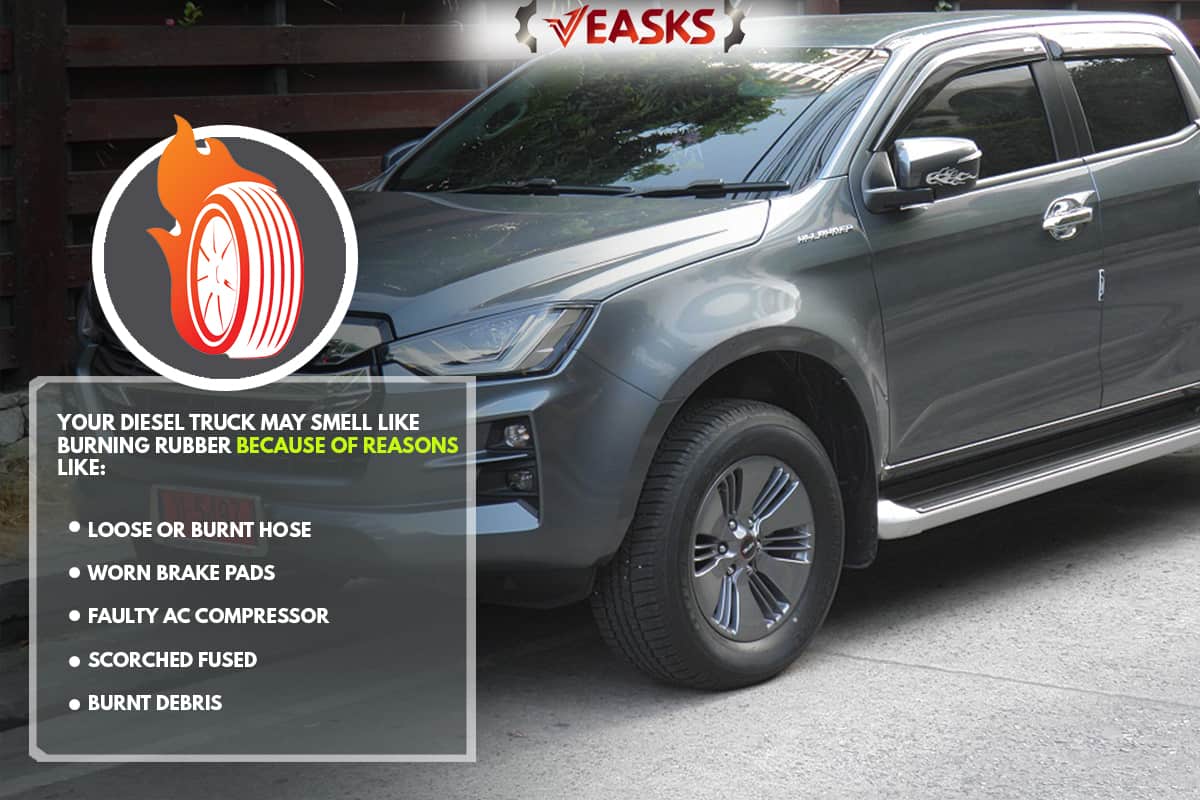
Why Does My Diesel Truck Smell Like Burnt Rubber?
Take note that you shouldn’t ignore any unknown smells coming from your diesel truck, especially the scent of burning rubber. Failure to find the source of the scent and remedy the situation may lead to dire consequences, including putting the well-being of you (as the driver) and other passengers in harm’s way.
Some of the potential causes of the burning rubber smell in your diesel engine are:
Loose Or Burnt Hose
Most hoses in vehicles, especially in trucks, have rubber constructions. Over time, these components can become worn, which might also lead them to become loose. The risks of this particular problem may increase because of underlying causes like:
- Old age
- Improper installation
- Incompatible hose to fitting
- High working pressure
- Frequent exposure to extreme temperatures
- Poor quality material
Failure to replace the hose before the problem aggravates may cause the loose component to generate unwanted friction. That traction may generate sufficient heat to burn the material, causing the burnt rubber smell.
Worn Brake Pads
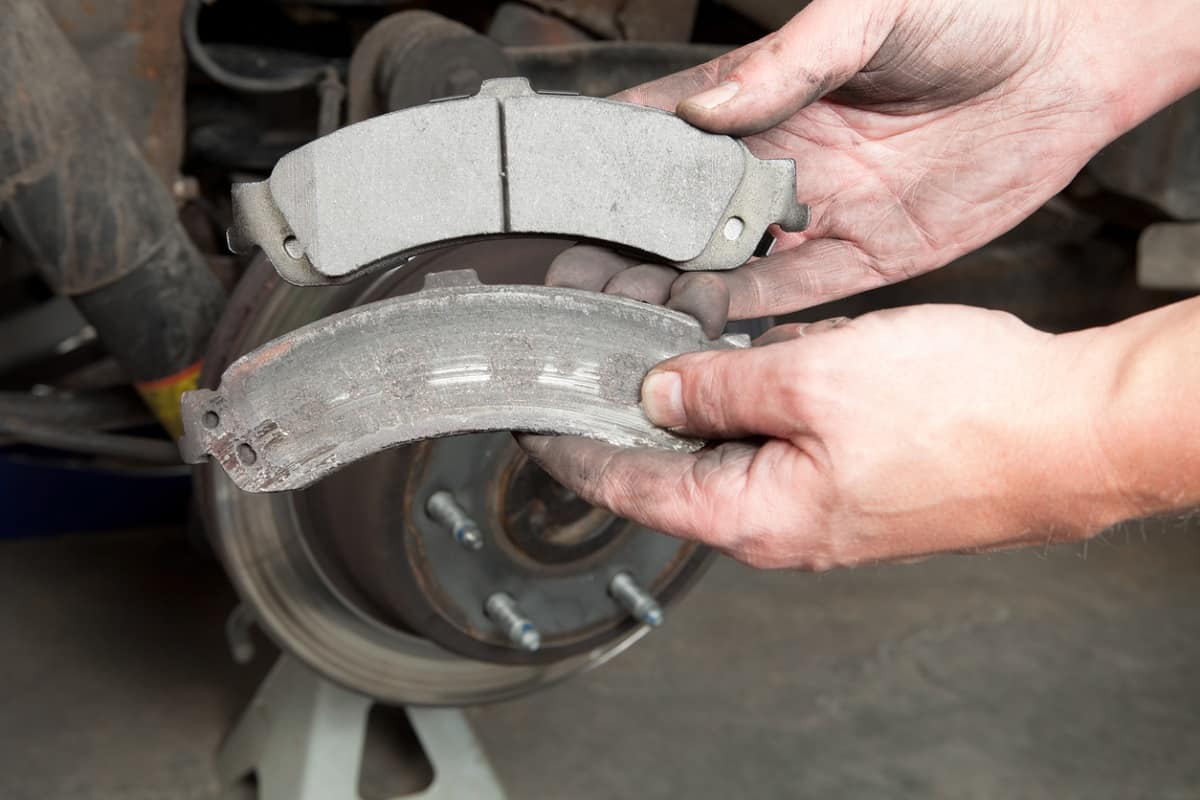
Brake pads generally last about 30,000 to 70,000 miles. Once these parts start wearing out, the friction and heat generated may also bring about a burnt rubber scent. If you verify that your diesel truck’s brake pads are at fault, replace them immediately to avoid serious accidents and injuries.
Faulty AC Compressor
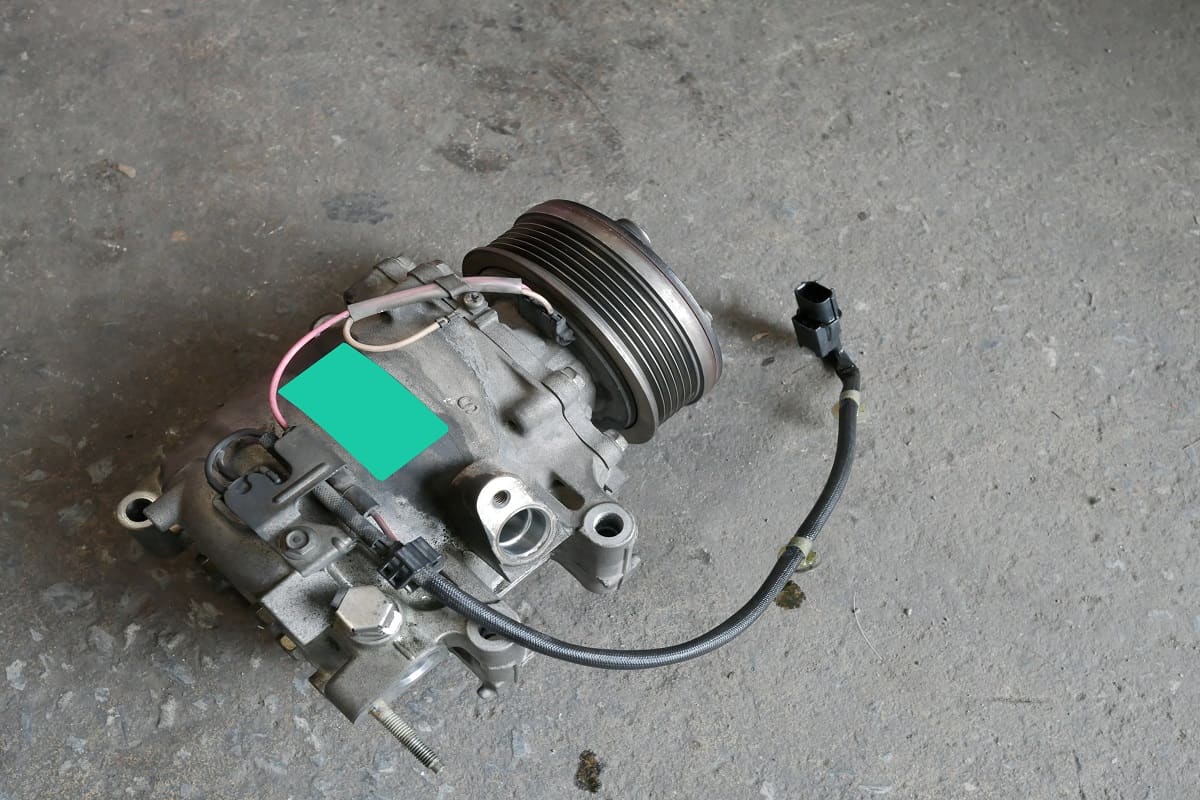
AC compressor failure can happen because of problems like:
- Dirt condenser coils
- Suction line blockage
- Incorrect hose used
- Over or undercharging
- AC system short circuit
A fault in your diesel truck’s AC compressor may increase the temperature felt by its rubber components. These parts may burn or singe, leading to the scorched smell.
Scorched Fuse
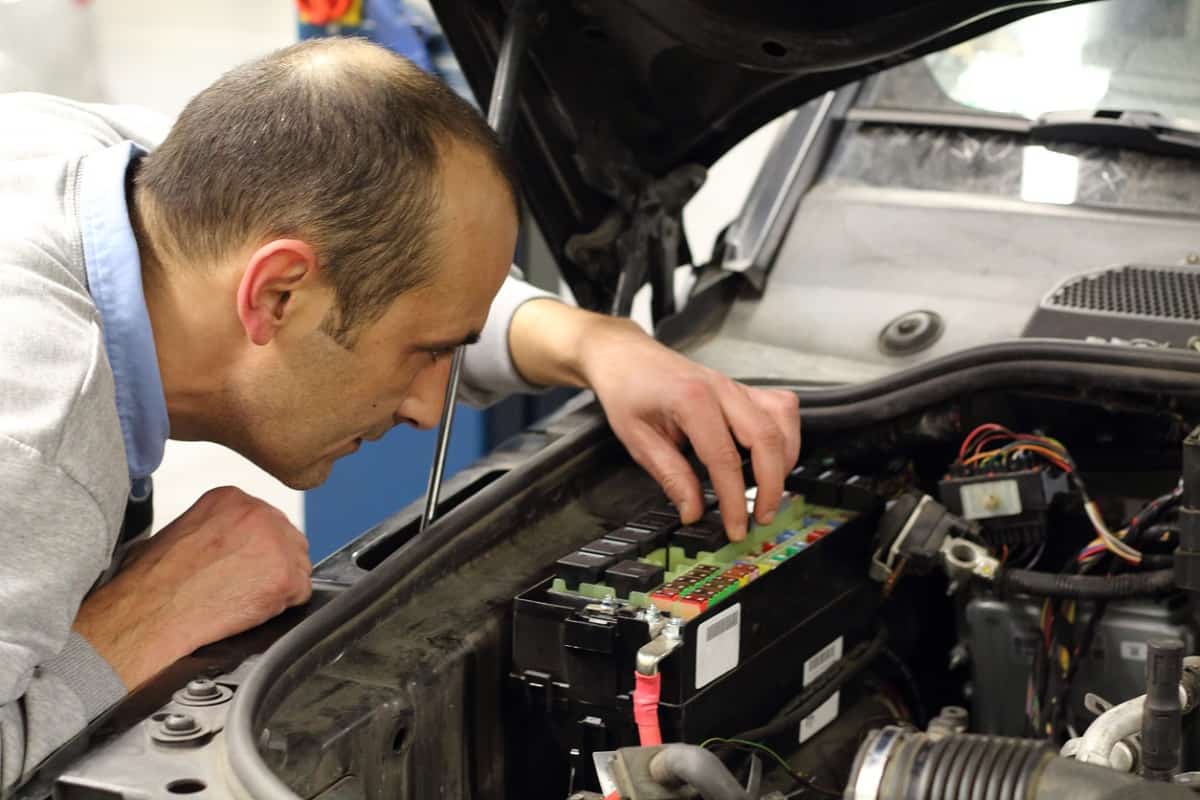
A short circuit in your diesel truck’s electrical system is one of the main reasons for blown fuses. Apart from that event, a fuse may burn and become inoperable because of instances like:
- Poor-quality construction
- Frayed wire insulation
- Exposed conductor
- Incorrect fuse placement
The blown fuse may produce a burning smell, which might be quite similar to singed rubber. Replacing the ruined fuse often fixes this issue.
Burnt Debris
Debris in your truck's AC system, particularly in the vents, might burn because of the high temperatures generated by the vehicle. These objects may also be the cause of the smell that's reminiscent of singed rubber.
How Do You Remove The Burning Rubber Smell From A Diesel Truck?
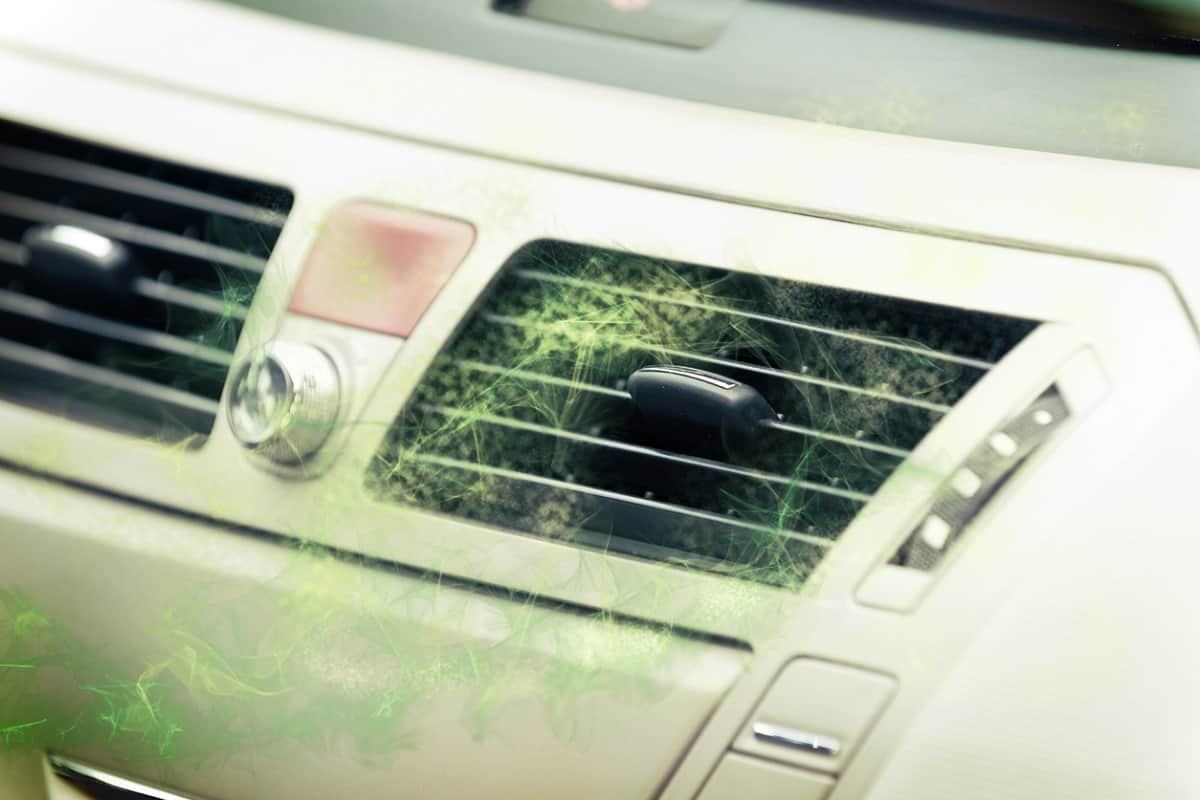
Keep in mind that the steps mentioned in this section may not be appropriate for your specific diesel truck model. Consult your vehicle’s owner’s manual or ask the truck manufacturer’s customer service department if you need extra help.
Also, ensure that you’re always practicing proper safety procedures as you troubleshoot and repair your diesel truck. Some of the safety guidelines to follow are:
- Ensure that the vehicle’s engine is off until needed.
- Don’t touch hot and/or moving parts, especially with your bare hands.
- Prop and support the truck properly if you’re going underneath it.
- The workspace should be as clean and tidy as possible at all times.
- Wear protective clothing, such as gloves, goggles, and boots.
After taking note of those precautions, check out the following possible solutions that may help in removing the burning rubber smell from your diesel truck:
Replace The Fuel Injector Return Hose
Take note of your diesel truck’s fuel injector return hose’s part number. Then, use that alphanumeric combination to help you in searching for a replacement unit. Don’t purchase and install a hose that’s not compatible with your vehicle’s system or else you might run into other problems.
What You’ll Need
- Replacement diesel fuel injector return hose
Step-by-Step Guide
- Turn off the diesel engine and engage the parking brake.
- Allow the engine to cool before opening the hood.
- Press one end of the fuel injector return hose with a sufficient amount of force.
- Wiggle that end free from its attachment.
- Repeat steps 3 and 4 for the other end of the hose.
- Insert the replacement hose into the appropriate terminals.
Check out this diesel return hose on Amazon.
Also, you may need to use a special servicing tool if you have difficulty removing and replacing the hose from its ports. Watch the video below to see this particular tool in action, along with a visual guide for the steps mentioned above:
Replace The AC Compressor
Replacing the AC compressor can be quite challenging for DIY beginners, particularly in the automotive niche. If you think that you don’t have the confidence or skill to continue this replacement job, leave it to the experts.
After taking note of that piece of information, check out these general steps to replace a car's AC compressor to give you an idea of how to complete this procedure:
What You’ll Need
- Socket wrench set
- Universal joint socket
- Panel clip pliers
- Manifold gauges
- Replacement AC compressor
Step-by-Step Guide
- Connect the manifold gauges to your diesel truck’s AC.
- Remove the refrigerant from the cooling system.
- Unscrew the bolts securing the old compressor.
- Pull out the old compressor and install the new unit. Secure the new AC compressor afterward.
- Turn on your vehicle’s engine to test if it new compressor works and if the burning rubber smell persists.
Check out this replacement AC compressor on Amazon.
Take note that you may need to do more steps than the process mentioned above. Some vehicles, including certain diesel trucks, may need you to lift them with jacks. Then, remove the wheel assemblies before you can gain access to the AC compressors.
Watch this video to see an AC compressor replacement job in action:
Why Does Diesel Exhaust Smell Good?
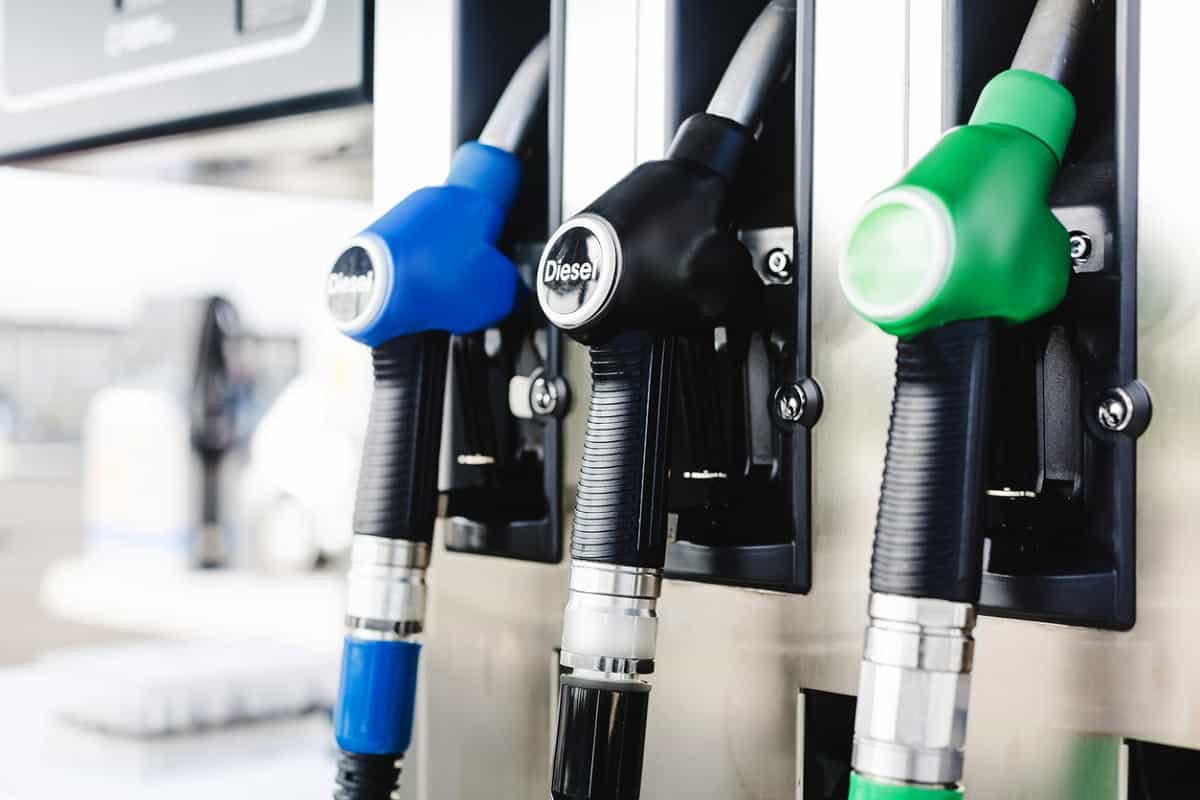
Some people may like the smell of diesel exhaust because of different reasons. For instance, the scent reminds these individuals of steam locomotives, which the event might trigger core memories. Other diesel enthusiasts may think of the smell of this type of fuel to be reminiscent of river cruisers.
Despite the appealing smell, avoid long exposure to the fumes generated by diesel. Consuming a significant amount of diesel gases may increase the risks of health problems, such as lightheadedness, nausea, and asthma attacks.
Final Words
Remember, the burning rubber smell in your diesel truck may come from different sources like a loose hose or worn brake pad. It’s best to avoid driving the vehicle until you remove the cause of the stench. Otherwise, you might put yourself and other passengers at risk of taking in hazardous fumes.
If you’re looking for the answers to other truck concerns, check out these other great posts:
Dodge Ram Evaporator Core Leak—What To Do?
Disconnected Battery Now Truck Won’t Start – Why And What To Do?




![Portrait of middle aged bearded truck driver standing by the truck and showing his commercial driver license. Focus on CDL license. Truck driving school and job openings, Do You Need A CDL To Drive A Box Truck [By State]](https://veasks.com/wp-content/uploads/2022/11/PORTRA1-600x400.jpg)
